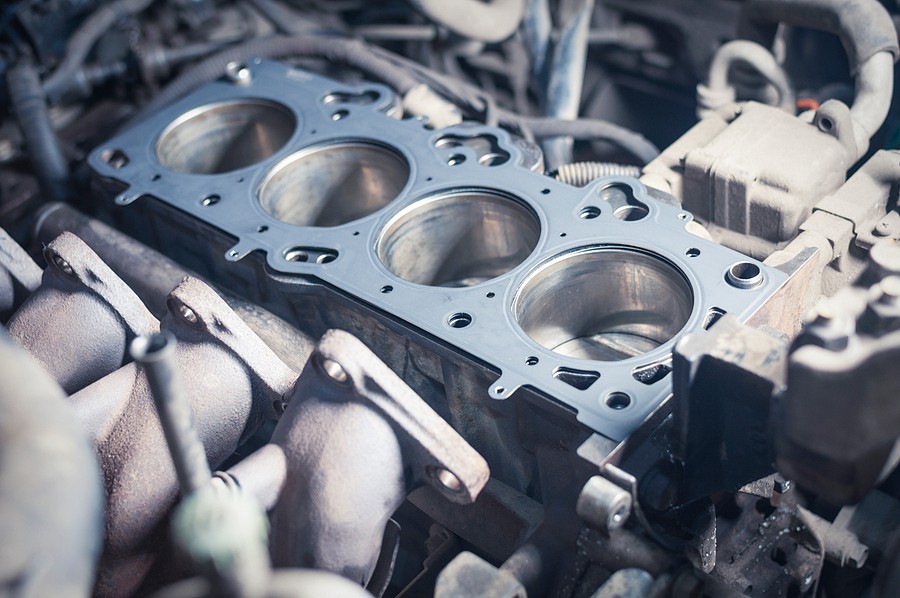The head gasket is a thin layer between the cylinders and the engine compartment. when dealing with a blown head, you must fix the problem or sell your car. Deciding between fixing or selling your car differ significantly on a case-by-case basis.
Several car problems might need thinking twice before repair. For example, a blown head gasket is a major engine problem that is very expensive to repair.
Unfortunately, when the head gasket blows, you must get the vehicle fixed; otherwise, you’ll deal with major complications making your vehicle challenging to drive. That’s why many drivers might end up selling their cars whenever dealing with severe issues related to a blown head gasket.
This article provides you with all you need to know about a blown head gasket. In addition, it serves as the ultimate guide for the blown head gasket as it highlights the main symptoms, causes, repair options, and repair costs.
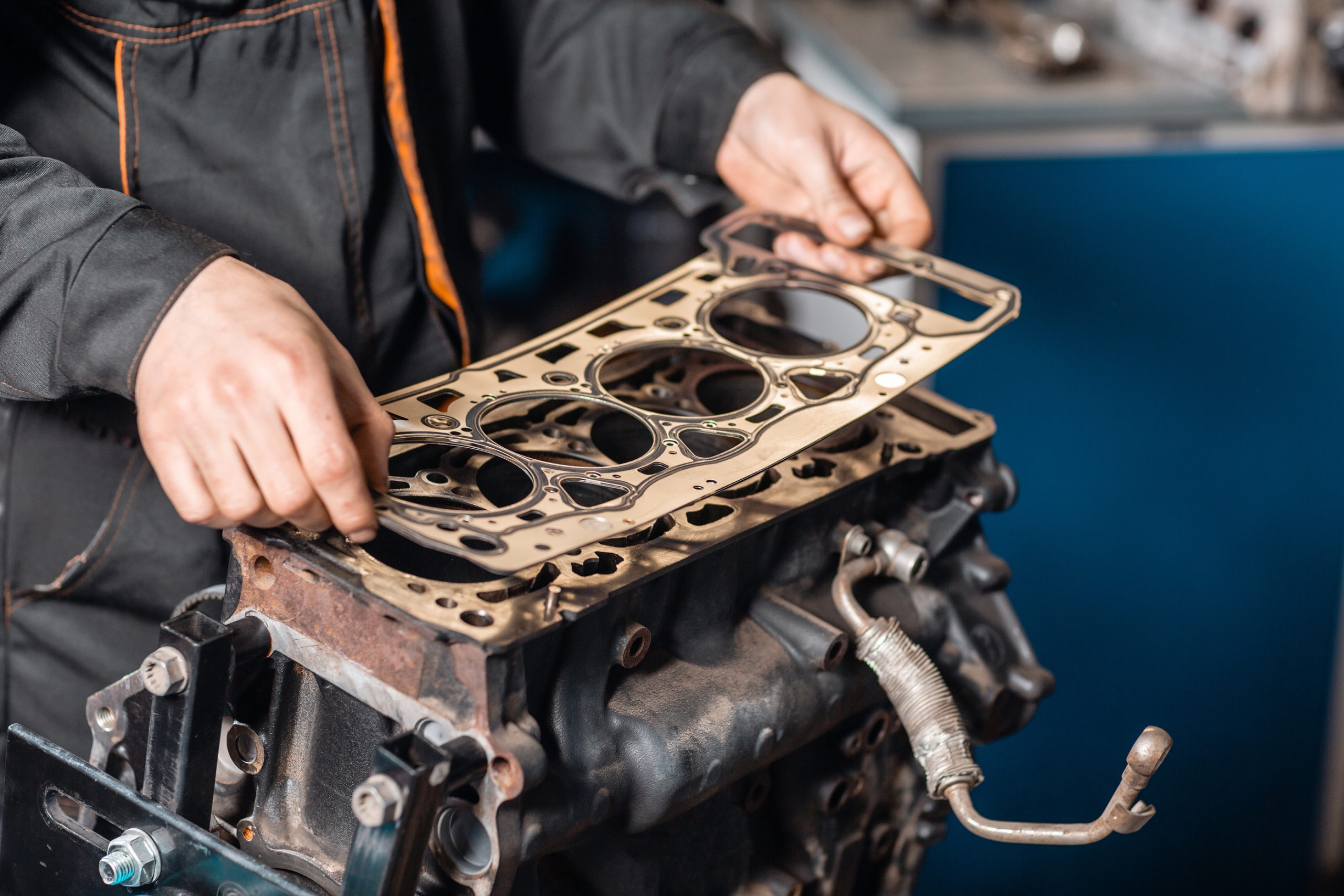
What is the head gasket, and what does it do?
Before we dive into the details about a blown head gasket, let's step back and get a general understanding of what it is and what it does.
The head gasket is a very thin layer sitting on top of the engine cylinders. It is responsible for preventing heat and hot gases from leaving the cylinders and getting towards the engine compartment. Similarly, the head gaskets are also responsible for preventing any liquids leaks inside the cylinders. Therefore, gas could please a two-way role in preventing the engine and its surrounding components.
What does it mean when you have a blown head gasket?
As you might expect, the head gaskets are exposed to continuous severe and extreme pressure and heat. That's why one might expect that the head gasket can blow up frequently. Luckily, the head gasket is typically designed from a very durable material, suitable for withstanding these extreme conditions.
However, there are some instances where the head gasket fails as it reaches the end of its lifetime. When this happens, you'll notice severe symptoms that might impact your vehicle's drivability. That's why Automotive Experts recommend fixing the problem as soon as possible to prevent extremely costly repairs.
Dealing with a blown head gasket is never a fun situation. It requires detailed research to make an informed decision about whether you should fix the blown head gasket or sell the vehicle Instead.
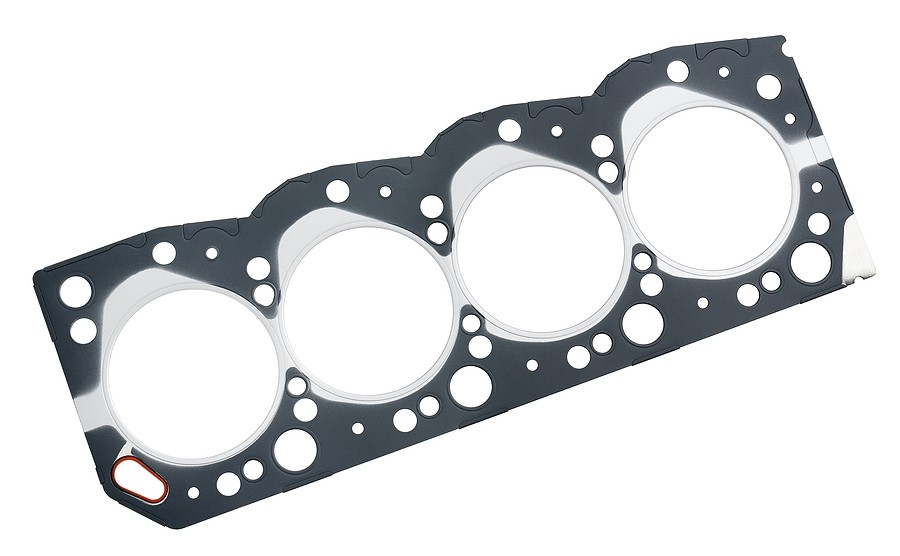
What are the main symptoms of a blown head gasket?
Since the blown head gasket is a very serious condition, drivers need to watch for any symptoms that could help them detect the problem early. The earlier you detect problems with a blown head gasket, the easier it is to fix the issue and the cheaper it is to resolve it.
Let's take a closer look at some of the common symptoms of a blown head gasket:
-
White smoke
The first and most common symptom indicates that you're dealing with blown head gaskets whenever you notice white smoke coming out of the tailpipe.
The longer you drive your car, the more you'll know when the smoke coming out of the tailpipe is weird. Typically, this smoke should not have a clear color unless you're starting your vehicle after a long stop or in the early mornings.
Therefore, every driver must keep an eye out for any weird vehicle Behavior. That's why whenever you see the white smoke coming out of the tailpipe, you'll have to stop driving your car and consult your mechanic.
Keep in mind that when white smoke comes out of the tailpipe, the issue might be related to multiple culprits. Therefore your mechanic needs to perform a thorough inspection before making a final decision about replacing the whole head gasket.
-
Overheating
The second thing that could indicate they're dealing with a blown head gasket is when your engine overheats.
Your engines must operate within a certain temperature range, and if it exceeds that maximum threshold, you’ll be dealing with what's known as engine overheating. You can easily deal with complicated consequences that could cost you the entire engine when this happens.
Therefore, you must immediately detect the culprits and resolve the problem before losing the entire vehicle. Note that the blown head gasket is one example of a potential culprit. Again, you can't immediately replace the head gasket to resolve the issue unless you look at other potential culprits.
-
contaminated engine oil
Sometimes performing a quick visual inspection saves you a ton of money on repairs. For example, if you suspect that you're dealing with a blown head gasket, you can take a look at the engine oil.
If you notice that the oil is contaminated or looks different in color, it's good to indicate that it was mixed with coolant because of a blown head gasket.
You might notice the engine overheating issue quicker than dealing with the contaminated oil. Check with your mechanic and have him perform a thorough inspection to detect the real culprit and fix the problem.
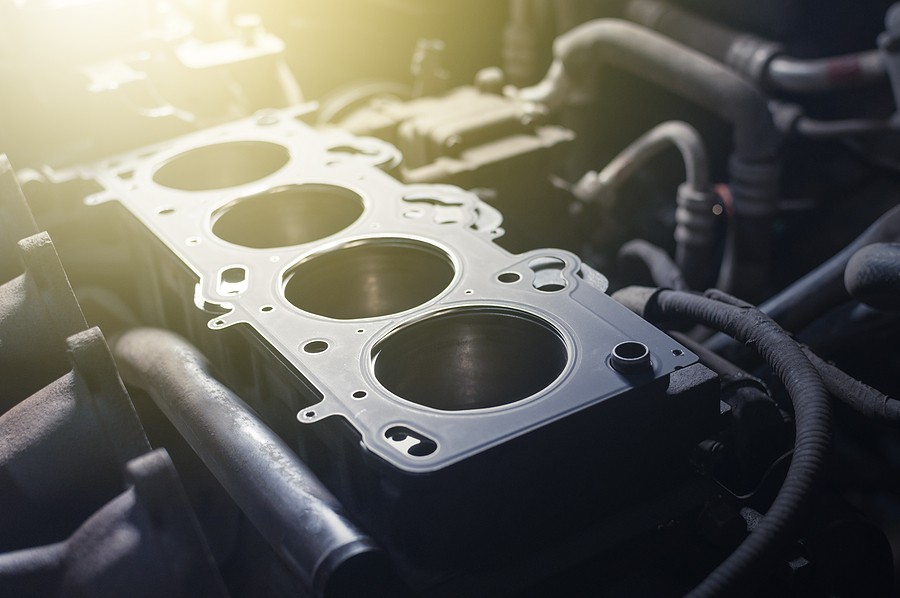
What causes the head gasket to blow up?
After reading through the first portion of this article, you can expect how critical it is to deal with a blown head gasket. Therefore, drivers need to familiarize themselves with ways of preventing this situation from happening in the first place.
One of the quickest ways is to monitor the different causes for a blown head gasket. Once you know to see these causes, you'll be able to prevent them and therefore prevent a blown head gasket situations:
-
Mileage
Unsurprisingly, the first thing that could cause the head gasket to blow out is reaching the end of its lifetime. Typically, head gaskets are expected to last up to 100,000 miles, if not more. However, it might even last longer depending on your environment and vehicle quality.
Therefore, once you hit the 100,000 miles, you must be prepared and be proactive about your predictions of a blown head gasket.
-
Overheating
Although engine overheating is one of the consequences of a blown head gasket, it can also be one of the main causes.
For example, if you're dealing with engine overheating problems due to low coolant or some internal or external leak, you can easily deal with a blown head gasket as well.
As we indicated earlier, the head gasket is designed from a durable material. Still, if the engine is extremely hot all the time, this material might not be able to withstand the temperature, and that's why you'll deal with damages in the head gasket prematurely.
-
Sudden temperature changes
Your head gaskets are designed in a way that allows them to expand or contract depending on the temperature. That's why many Automotive Experts recommend allowing your vehicle to warm up for a little bit of time before driving your car.
However, if you start your car on a cold morning and immediately press on the gas all, you cause sudden changes in the temperature, impacting how the head gasket operates.
Keep in mind that this does not happen at one time. In other words, if you accidentally press the gas pedal fast for one time, you should have worried about dealing with blown head gaskets. However, if you continuously cause abrupt changes to the engine temperature, don't be surprised to deal with a blown head gasket.
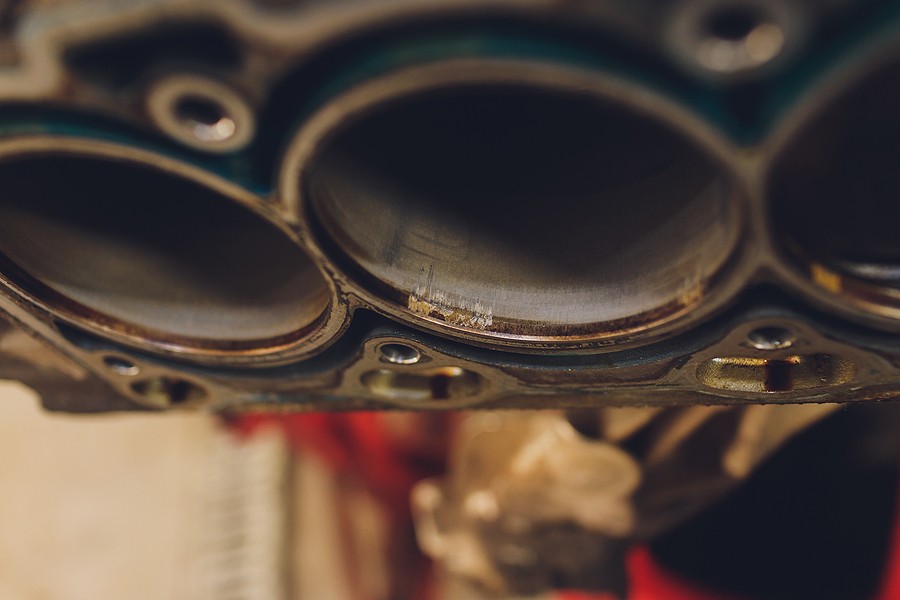
Can you drive with a blown head gasket?
Of course not. While you can continue driving your car if you are dealing with initial issues with the head gasket, it's never recommended to continue doing so.
By continuing driving your car with a blown head gasket, there's a very high chance that you'll introduce them adjust to other surrounding Components. Therefore, to save yourself a lot of repair costs and prevent catastrophic outcomes, it is critical that you resolve the issue and never continue driving your car if it has a blown head gasket.
How much does it cost to fix a blown head gasket?
The average cost to fix a blown head gasket ranges from $1,000 to $2,000. Keep in mind that this price can climb up significantly depending on your vehicle site, especially if you're driving a luxury car.
When evaluating fixing a blown head gasket, the other thing to think about is labor cost. For example, if you decide to get your car fixed as an independent shop, labor costs will be significantly lower than going to a dealership.
However, there are plenty of drivers who might still go to the dealership even though they'll have to pay more for a labor cost. This is because they know for sure that experience mechanics who know the vehicle very well are going to work on the car. So you don't have to worry about the damage that mistakes could introduce this way.

Is it worth fixing a blown head gasket?
As you might notice, fixing a blown head gasket is not cheap. Therefore, you'll need to do your evaluation to confirm whether it's worth fixing a blown head gasket or not. This all depends on what effects does that differ on a case-by-case basis:
-
Your vehicle's value
Sometimes if your car is not very valuable, spending too much on fixing a blown head gasket might not make a lot of sense. Therefore, if you're in this situation, you better so this car instead of wasting your time, money, and effort.
-
Total repair cost
While we mentioned that 16 a blown head gasket should cost you between $1,000 and $2,000, this is not the full story. In other words, you need to perform a full evaluation and carefully the total needed repair costs.
For example, if your vehicle does for a tire rotation or probably oil change, you'll also have to account for those. Once you have a final number, we can compare it to Your vehicle’s overall value.
As a rule of thumb, Automotive Experts recommend never fixing a car that will cost you more than 75% or more of your vehicle's value. Of course, this should be straightforward and make sense.
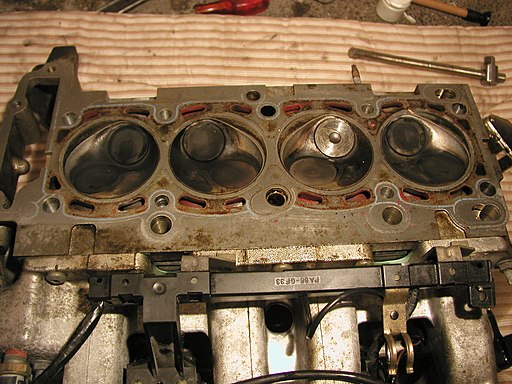
How often should I replace the head gasket?
Typically, you won't need to replace the head gasket. Add gaskets are expected to last 100000 Mi, and in some situations, they might even reach 200,000 miles.
Experts recommend keeping an eye out for any symptoms indicating a bad or blown head gasket before spending your energy or placing it. However, you still recommend that you go to your vehicle's owner's manual to get an idea about when to expect gasket problems, so you be proactive about them and prepared for them before they even happen.
Conclusion
Dealing with a blown head gasket is a very critical situation. You'll be between either fixing her car or selling it because repair costs are very high, and you can't continue driving a car with a blown head gasket.
Understanding all the details about your vehicle's blown head gasket is extremely important. It helps you be prepared for what to expect. Next, it gives you an idea about how much it will cost to fix a blown head gasket and allows you to decide whether you should fix your car or sell it.
If you end up selling your car, it might be a little challenging to find a potential private buyer. However, selling a car with a blown head gasket is not impossible. The good news is that cash cars buyer is one of the very limited companies that guarantee to buy your car, considering it has a blown head gasket.
Cash Cars Buyer is one of the top-rated car removal companies in the nation that guarantees to pay you the top dollars and provide you with free towing despite your living location around the United States.
Our process is very straightforward and doesn't take more than a couple of days to get your car removed safely and for the most money.
All it takes you is to:
- Describe your car’s type and condition
- Receive our instant free quote
- Accept the quote
- Get your car removed and receive your cash payment on the spot!
To learn more about our process and our teen, you can reach out to us by giving us a call at 866-924-4608 or visit our home page click on the free instant online offer.

